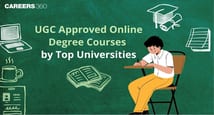- Introduction to Counselling Practitioner Certificate (Beginner to Advanced)
- Course Support and Frequently Asked Questions (FAQs)
- The Purpose of Counselling
- Where the Ideas in Counselling Come From?
- What is Counselling? (Article)
- The Levels of Relatability (Part 1)
- The Levels of Relatability (Part 2)
- A Short History of Counselling (Article)
- Discriminations: Self-Awareness Exercise
- The 'Are You Prejudiced? Quiz
- The Iceberg Concept of Culture (Part 1)
- The Iceberg Concept of Culture (Part 2)
- Exercise: Issues of Diversity & Self-Awareness Questions (after Quiz 1)
- The Dimensions of Personal Prejudice
- Introducing Frame of Reference
- The Internal and External Frame of Reference (Article)
- The Values of Counselling Psychology (Part 1)
- The Values of Counselling Psychology (Part 2)
- The Values of Counselling Psychology (Part 3)
- An Ethical Framework for Counselling Practitioners (Article)
- The Johari Window: Identifying Blind Spots (Part 1)
- The Johari Window: Identifying Blind Spots (Part 2)
- Join the FREE ‘Principles into Practice’ Discussion Group
- The Core Conditions of Therapeutic Counselling (Article)
- Person Centred: Carl Rogers 3 Core Conditions
Counselling Skills Certificate Course (Beginner to Advanced)
Gain a comprehensive understanding of counseling skills for personal development as a foundation for a professional ...Read more
Beginner
Online
₹ 449 3299
Quick Facts
| particular | details | |||
|---|---|---|---|---|
|
Medium of instructions
English
|
Mode of learning
Self study
|
Mode of Delivery
Video and Text Based
|
Course overview
The Counselling Skills Certificate Course (Beginner to Advanced) online training was iceberg created by Kain Ramsay - Social Entrepreneur, Applied Psychologist, and Published Author in collaboration with The Academy of Modern Applied Psychology and is delivered by Udemy to participants who want to learn all of the principles of counseling. Counselling Skills Certificate Course (Beginner to Advanced) online classes provide a practical and comprehensive counseling technique that can serve as the basis for a significant and satisfying new profession in counseling.
Counselling Skills Certificate Course (Beginner to Advanced) syllabus provides a significant viewpoint on the difference between counseling, a professional activity, and counseling abilities, which can be useful for people in any profession. This course includes 44 hours of lectures, 3 articles, and 269 downloadable resources on topics such as the concept, levels of relatability, frame of reference, personal prejudice, counseling psychology values, the six-stage cycle of change, empathic mind model, Karpman drama triangle, LCB model, Sigmund Freud's defense mechanism, and Aristotle's Nicomachean set of ethical questions.
The highlights
- Certificate of completion
- Self-paced course
- 44 hours of pre-recorded video content
- 3 articles
- 269 downloadable resources
Program offerings
- Online course
- Learning resources. 30-day money-back guarantee
- Unlimited access
- Accessible on mobile devices and tv
Course and certificate fees
Fees information
certificate availability
Yes
certificate providing authority
Udemy
Who it is for
What you will learn
After completing the Counselling Skills Certificate Course (Beginner to Advanced) online classes, participants will get an understanding of the core principles of counseling as well as the psychology of counseling. Participants will learn how to motivate and inspire their customers through a variety of strategies and gain a thorough understanding of human emotions. Participants will gain an understanding of numerous areas of communication, such as listening, immediacy, non-verbal communication, and self-awareness, as well as ways for maintaining successful personal and professional relationships. Participants will also learn about concepts like humanism, behaviorism, psychoanalysis, and transference.
The syllabus
The Foundations of Person-Centred Counselling
An Investigation of the Human Condition
- Aristotle's Nicomachean Set of Ethical Questions (Part 1)
- Aristotle's Nicomachean Set of Ethical Questions Part 2
- Person Centred: How People See and Interpret Life (Part 1)
- Person Centred: How People See and Interpret Life (Part 2)
- Person Centred: The Empathic Mind Model
- Congruence and the Person Centred Approach (Article)
- Humanism: The Human Givens Framework (Part 1)
- Humanism: The Human Givens Framework (Part 2)
- Humanism: The Human Givens Framework (Part 3)
- The Human Givens Approach (Article)
- Humanism: Deriving Meaning & Purpose (Part 1)
- Humanism: Deriving Meaning & Purpose (Part 2)
- Exercise: How Present is Your Past?
- A Metaphor for Understanding People
- Understanding People: Further Distinctions
- The Pre-assumptions of Person Centred Therapy Part 1
- The Pre-assumptions of Person Centred Therapy Part 2
- Exercise: Exploring Your Core Beliefs Part 1
- Exercise: Exploring Your Core Beliefs Part 2
- Exercise: Exploring Your Core Beliefs Part 3
- The Psychology of Self (Part 1 of 3)
- The Psychology of Self (Part 2 of 3)
- The Psychology of Self (Part 3 of 3)
- Six Ingredients of a Therapeutic Relationship Part 1
- Six Ingredients of a Therapeutic Relationship Part 2
- Psychoanalysis: Freud's Iceberg Theory of Consciousness
- Psychoanalysis: Freud's ID, Ego & SuperEgo Theory
- Sigmund Freud's Defence Mechanisms (Part 1 of 3)
- Sigmund Freud's Defence Mechanisms (Part 2 of 3)
- Sigmund Freud's Defence Mechanisms (Part 3 of 3)
- Quiz: Can You Identify the Following Defence Mechanisms?
- End of Section 2 Summary & Wrap-Up
Counselling Frameworks, Standards and Self-Reflection
- Congruence Self-Assessment Exercise
- A Closer Look at Congruence: The Art of Being Real (Article)
- Self-Perception Self-Assessment (Part 1)
- Self-Perception Self-Assessment (Part 2)
- The Roadblocks to Active Listening (Part 1)
- The Roadblocks to Active Listening (Part 2)
- The Roadblocks to Active Listening (Part 3)
- The LCB Model for Understanding People (Part 1)
- The LCB Model for Understanding People (Part 2)
- The LCB Model for Understanding People (Part 3)
- Understanding People Further Distinctions & Exercise
- The Differences Between Death and Life (Exercise)
- Shifting From Negative to the Positive (Demonstration)
- Shifting From Negative to the Positive (Demonstration Deconstruction)
- Putting the LBC Model Into Practice (Part 1)
- Putting the LBC Model Into Practice (Part 2)
- Putting the LBC Model Into Practice (Demonstration Deconstruction)
- Section 3 Summary & the Human Experience Overview (Part 1)
- Section 3 Summary & the Human Experience Overview (Part 2)
Philosophy and Principles of Counselling Psychology
- An Introduction to Counselling/Psychological Theory
- The Philosophical Underpinnings of Counselling Practice
- The Evolution of Psychological Thinking (Article)
- Martin Buber: The Philosophy of Dialogue
- Humanism: Conditions for Therapeutic Change (Expanded) Part 1
- Humanism: Conditions for Therapeutic Change (Expanded) Part 2
- Six Conditions for Therapeutic Change (Article)
- Humanism: The Psychology of Abraham Maslow (Part 1)
- Humanism: The Psychology of Abraham Maslow (Part 2)
- A Look Into Humanistic Psychology (Article)
- Demonstration: A Values Based Discussion
- Psychoanalysis: Transactional Analysis & the 3 Ego States
- Psychoanalysis: Ego States Discussion and Demonstration
- Psychoanalysis: Ego States Discussion and Demonstration
- The Karpman Drama Triangle (Article)
- Transference, Counter Transference & Parallel Process
- Transference and Counter Transference (Article)
- Phenomenology: Innacurate Perceptions & Bee Stings
- The Six Stage Cycle of Change (Part 1)
- The Six Stage Cycle of Change (Part 2)
- The Six Stage Process of Change (Article)
- General Awareness: Dependency & Co-Dependency (Part 1)
- General Awareness: Dependency & Co-Dependency (Part 2)
- Ontology: The Source of Human Identity (Part 1)
- Ontology: The Source of Human Identity (Part 2)
- Introducing Behaviourism: Calibrating on Behaviour
- Behaviourism: Classical Conditioning (Article)
- Behaviourism: Operant Conditioning (Article)
- How Theory Can Inform Counselling Practice (Demonstration)
- Behaviourism: Demonstration Deconstruction
- Cognitive Behavioural: Self Awareness Questions (Part 1)
- Cognitive Behavioural: Self Awareness Questions (Part 2)
- The CBT Thought Investigation Model
- Cognitive Dissonance (Article)
- The Thought Investigation Model Demonstration
- The CBT Human Experiential Model (Basic Model)
- The CBT Human Experiential Model (Advanced Model) Part 1
- The CBT Human Experiential Model (Advanced Model) Part 2
- The ABC's of Cognitive Interpretation
- The Disputation of Innacurate Beliefs
- The Disputation of Innacurate Beliefs (Demonstration)
- Cognitive Distortions & Patterns of Unhelpful Thinking (Part 1)
- Cognitive Distortions & Patterns of Unhelpful Thinking (Part 2)
- Mental Filtering and Cognitive Distortions (Article)
- The Natural Order of Human Emotion & Section Wrap-Up
Counselling Skills and the Skilled Helper Model
- Introducing Counselling Skills & The 3 Phase Model
- The G. Egan Three Phase Counselling Model (Article)
- The 10 Stage Counsellee Experience (Part 1)
- The 10 Stage Counsellee Experience (Part 2)
- Empathy as a Work Practice (Article)
- Phase 1: Relationship Building Skills & Exploration
- Phase 1: Demonstration & Deconstruction (Part 1)
- Phase 1: Demonstration & Deconstruction (Part 2)
- Phase 1: Relationship Building Skills Advanced
- Healthy Goal Focussed Communications (Article)
- The Conversational Chunking Framework
- The Conversational Chunking Framework Demonstration
- The Hierarchy of Ideas: Chunking Up & Down (Article)
- Silence: A Self-Reflection Exercise
- Critical Reflection: Putting You On The Spot
- Empathic Relatability Exercise: Putting You On the Spot (Again)
- Starting Healthy Discussions: Icebreakers
- Starting Healthy Discussions: Demonstration
- Basic Counselling Skills (Article)
- Exploration Phase 1: Demonstration Session (Part 1)
- Exploration Phase 1: Demonstration Session (Part 2)
- Exploration Phase 1: Demonstration Deconstruction
- Alfred Adler: The Purpose of Skills in Therapy (Part 1)
- Alfred Adler: The Purpose of Skills in Therapy (Part 2)
- Phase 2: Broadening Perspective Counselling Skills (Part 1)
- Phase 2: Broadening Perspective Counselling Skills (Part 2)
- Exploring the Difference Between Open and Closed Questions
- Discussing Open and Closed Questions
- The Socratic Method for Empathic Confrontation
- The Socratic Method for Empathic Confrontation Demo (Part 1)
- Socratic Questioning for Empathic Confrontation Demonstration (Part 2)
- Demonstration Deconstruction & Analysis
- Another look at the LCB 'Inside-Out' Model
- The Phase 2 LCB Model Demonstration (Part 1)
- The Phase 2 LCB Model Demonstration (Part 2)
- The Phase 2 LCB Model Demonstration (Part 3)
- LCB Model Demonstration Deconstruction
- The Fundamental Levels of Listening
- Listening For: The Difference that Makes a Difference (Part 1)
- A Closer Look at Immediacy (Article)
- Listening For: The Difference that Makes a Difference (Part 2)
- Self Reflection Exercise: Listen and Learn
- Phase 3: The 5 Reflection Questions for Goal Setting
- Phase 3 Goal Setting Questions: Demonstration Session (Part 1)
- Phase 3 Goal Setting Questions: Demonstration Session (Part 2)
- Future Planning Questions: Self Reflection Exercise
- Phase 3: Selecting an Accountability Partner
- Endings, Evaluations of Clients, and End of Section Summary
Demonstration Section: The Counselling Process in Action
- Introducing the Demonstration Section
- Getting Started with the Demonstrations
- The Becca Sessions: Phase 1 Demonstration - Session 1 - Part 1
- The Becca Sessions: Phase 1 Demonstration - Session 1 - Part 2
- The Becca Sessions: Phase 1 Demonstration - Session 1 - Part 3
- The Becca Sessions: Phase 1 Demonstration - Session 1 - Part 4
- The Becca Sessions: Phase 1 Demonstration Deconstruction
- The Becca Sessions: Phase 2 Demonstration - Session 2 - Part 1
- The Becca Sessions: Phase 2 Demonstration - Session 2 - Part 2
- The Becca Sessions: Phase 2 Demonstration - Session 2 - Part 3
- The Becca Sessions: Phase 2 Demonstration - Session 2 - Part 4
- The Becca Sessions: Phase 2 Demonstration Deconstruction
- The Becca Sessions: Phase 3 Demonstration - Session 3 - Part 1
- The Becca Sessions: Phase 3 Demonstration - Session 3 - Part 2
- The Becca Sessions: Phase 3 Demonstration - Session 3 - Part 3
- The Becca Sessions: Phase 3 Demonstration - Session 3 - Part 4
- The Becca Sessions: Phase 3 Demonstration Deconstruction
- The Laurie Sessions: Phase 1 Demonstration - Session 1 - Part 1
- The Laurie Sessions: Phase 1 Demonstration - Session 1 - Part 2
- The Laurie Sessions: Phase 1 Demonstration - Session 1 - Part 3
- The Laurie Sessions: Phase 1 Demonstration - Session 1 - Part 4
- The Laurie Sessions: Phase 1 Demonstration Deconstruction
- The Laurie Sessions: Phase 2 Demonstration - Session 2 - Part 1
- The Laurie Sessions: Phase 2 Demonstration - Session 2 - Part 2
- The Laurie Sessions: Phase 2 Demonstration - Session 2 - Part 3
- The Laurie Sessions: Phase 2 Demonstration - Session 2 - Part 4
- The Laurie Sessions: Phase 2 Demonstration Deconstruction
- The Laurie Sessions: Phase 3 Demonstration - Session 3 - Part 1
- The Laurie Sessions: Phase 3 Demonstration - Session 3 - Part 2
- The Laurie Sessions: Phase 3 Demonstration - Session 3 - Part 3
- The Laurie Sessions: Phase 3 Demo - Session 3 - Part 4
- The Laurie Sessions: Phase 3 Demo Deconstruction
- End of Demonstration Section Summary & Wrap up
Completion of Course Review and Graduation
- The Principles of Professional Counselling Practice
- Course Recommended Reading List
- Closing Thoughts and End of Course Summary
- DOWNLOAD YOUR CERTIFICATE HERE
Instructors
Articles
Popular Articles
Latest Articles
Similar Courses


How to start Blogging
Great Learning


Learn How To Start Your Own Soap Making Business L...
Simpliv Learning


How to Jumpstart Your Hidden Creative Genius
MSU East Lansing via Coursera


Negotiations
Penn via Coursera


How to Write an Essay
UC Berkeley via Edx


Introduction to keyboard
EduBridge


Power Onboarding
Northwestern University, Evanston via Coursera


Social Norms Social Change II
Penn via Coursera
Courses of your Interest

Smart English Basics for Professionals
Great Learning

Write a Book Creative Writing Skills For Beginner ...
Simpliv Learning

Revolutionize Your Career Competitive Edge
Simpliv Learning

Write A Feature Length Screenplay For Film Or Tele...
MSU East Lansing via Coursera

Becoming a Successful Leader Inclusive Leadership ...
Catalyst via Edx

Communicating Strategically
Purdue University, West Lafayette via Edx

Easy Vlogging Making Interactive Self Introduction...
The Hong Kong Polytechnic University,... via Edx

English Work Advanced Job Interview Skills
The Hong Kong Polytechnic University,... via Edx

English Work Basic Job Interview Skills
The Hong Kong Polytechnic University,... via Edx

.jpg)
 Brochure
Brochure Enquire
Enquire













